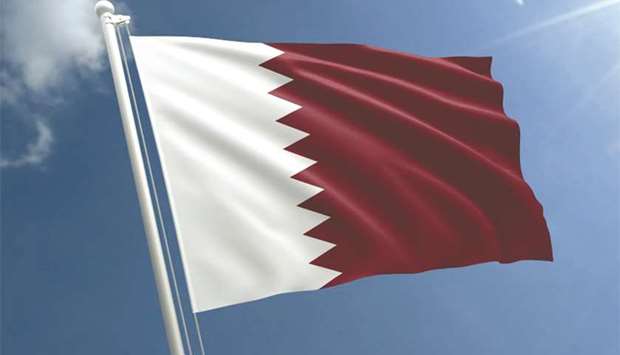They pointed out that Qatar became stronger in light of the current Gulf crisis, and provided a successful model in how to manage crises and turn the challenges into opportunities, and adopt flexible strategies to address the consequences of the siege, especially at the political and economic levels, during the “Third Annual International Interdisciplinary Conference: Gulf Crisis, Repercussions and Future” by the Gulf Studies Center (GSC) at Qatar
University (QU).
During a session on “Crisis Management in the Era of Global Network - The Case Of Qatari Blockade”, Dr Adriana Lukaszewicz from Kozminski University, said that after 18 months of siege Qatar appears to be more resilient to the repercussions of the crisis. “There has been a change in the nature of the threats associated with the crisis, specially after Qatar has succeeded in turning challenges into opportunities by improving all its economic sectors, and building new regional and international alliances.”
She explained that success in crisis management is directly related to the success of the management in general, and it reflects the overall success in the state management.
“Qatar’s response to the crisis and its rapid success in overcoming it, finding alternative commercial goods in record time, creating new alliances, and seeking self-sufficiency in agricultural and industrial goods is interesting,” Dr Lukaszewicz added.
Dr Wojciech Grabowsk, a specialist in political science, said that Qatar has been able to face the crisis through its dependence on collective management, and adopted a strategy through which it faced all the repercussions, especially on the political and economic levels, leaving only the social repercussions done by the siege countries in the separation of families, and the disruption of social ties.
He added, “Qatar has taken effective measures to counter the negative propaganda campaigns organised by the siege countries against the image of the state, especially in Western countries, as Qatar succeeded in this, whether in the media or through the actual actions by strengthening alliances with countries of the world, including the United States, and major European and regional
countries.”
He also pointed out that Qatar also won in its campaign against the human rights violations that affected the Qatari citizens, because of the measures of the countries of the blockade, and the position of the Human Rights Council a strong victory in the face of the besieged states.
Dr Wojciech Grabowski praised the public cohesion along with the leadership
during the crisis.
He said that there was a popular enlightenment campaign that showed the cohesion of society between the leadership and people and showed the harmony between Qataris and residents and made it more powerful to face new threats.
Dr Kristian Coates, the keynote speaker, said that one of the most important repercussions of the crisis is the sharp Gulf division and the introduction of new players in the Gulf scene. “The confusion of the US administration in dealing with the crisis and its inability to resolve it doubled those
repercussions.”
Dr Majid al-Ansari, professor of political psychology at Qatar University (QU), presented a paper titled “The inevitableness of GCC conflicts: An analysis of intra-gulf relations and regional hegemony attempts”, where he analysed the relations between the Gulf states and attempts at regional hegemony.
Dr Hassan Rashid al-Derham had inaugurated the Third Annual International Interdisciplinary Conference and highlighted the importance of the conference to consolidate academic understanding of political, economic and social aspects of the current Gulf crisis, in order to develop mechanisms that help to understand their origins, implications and prospects as a crisis that exceeded all expectations.
He added that the conference comes in conjunction with many regional and international developments including the Summit of the GCC Supreme Council.
Dr Mahjoob Zweiri, director, Gulf Studies Centre, said the conference comes as part of the centre’s focus on interactive issues in the Gulf regions and is part of many events that documents the reactions of the Gulf crisis.
He added that the centre’s vision is to develop and promote QU’s goal to develop academic researches in Qatar and the regions, through producing academia that reflects the history of the GCC crisis which is a transitive crisis in its various dimensions.
The conference brings together scholars, policy makers and students from a wide-range of disciplines to engage in a two-day conference. The conference has also invited Munich Security Conference (MSC) chairman Wolfgang Ischinger who will be giving a speech on the European Role in Regional Security of the Gulf in the afternoon of the first day of the
conference. (QNA)

